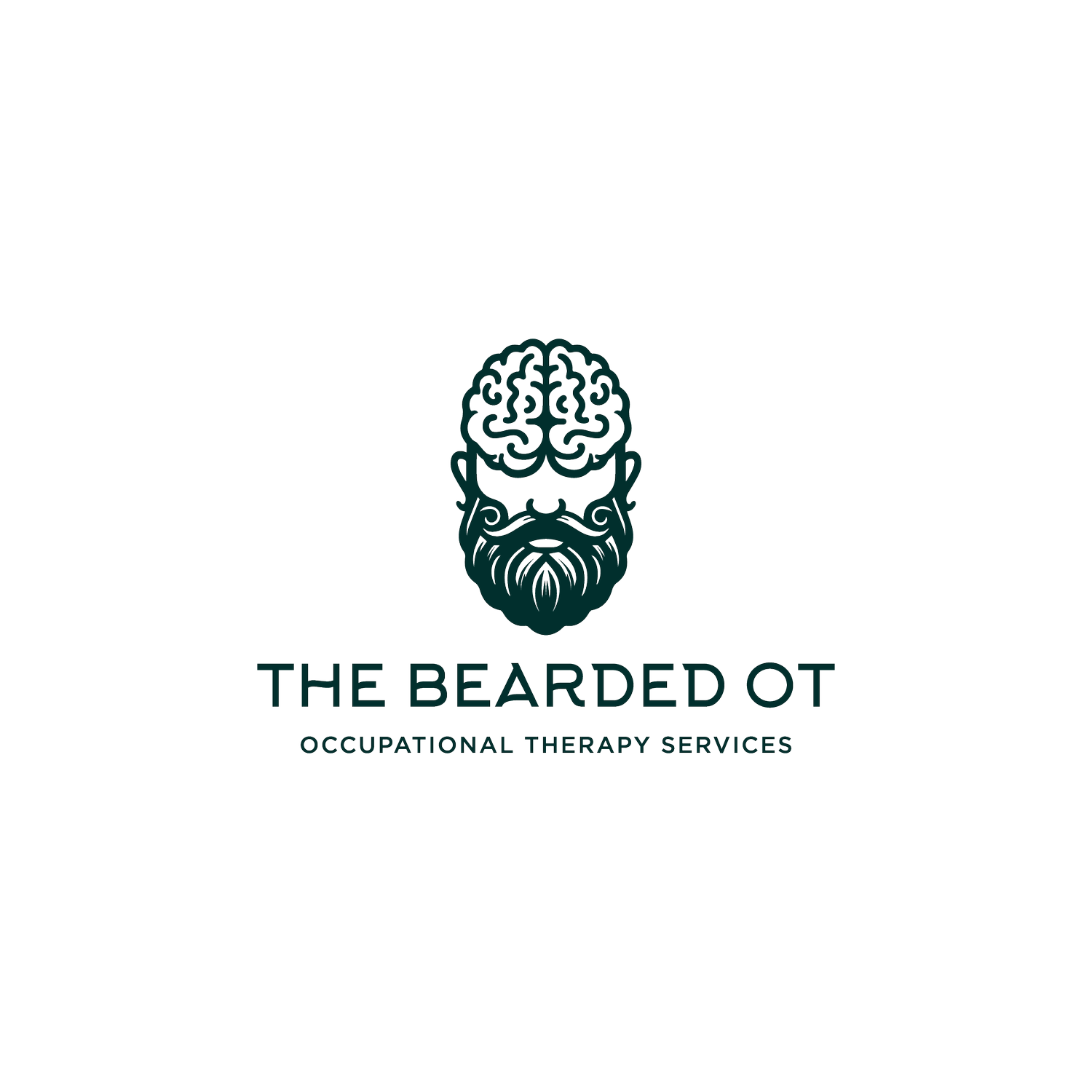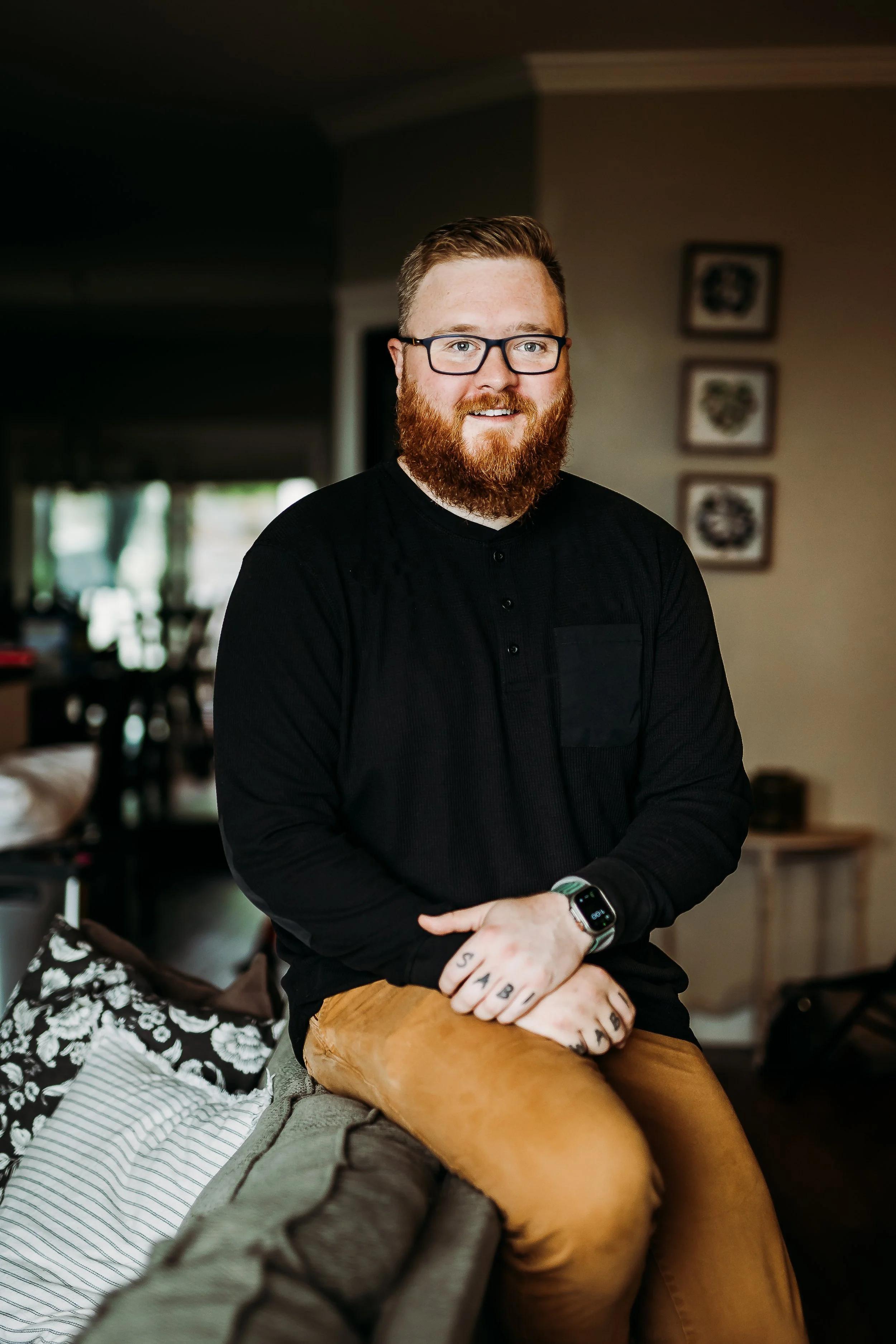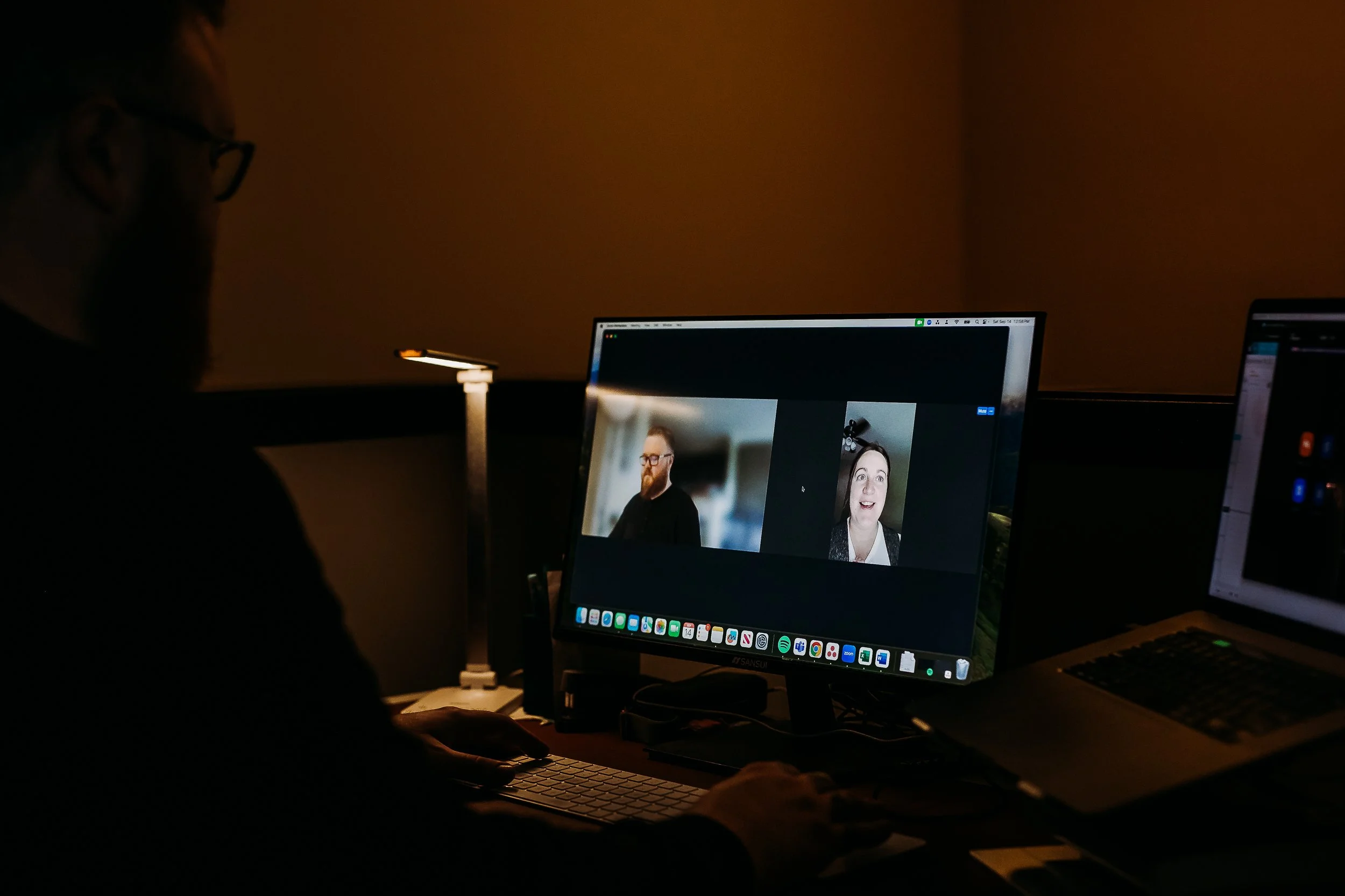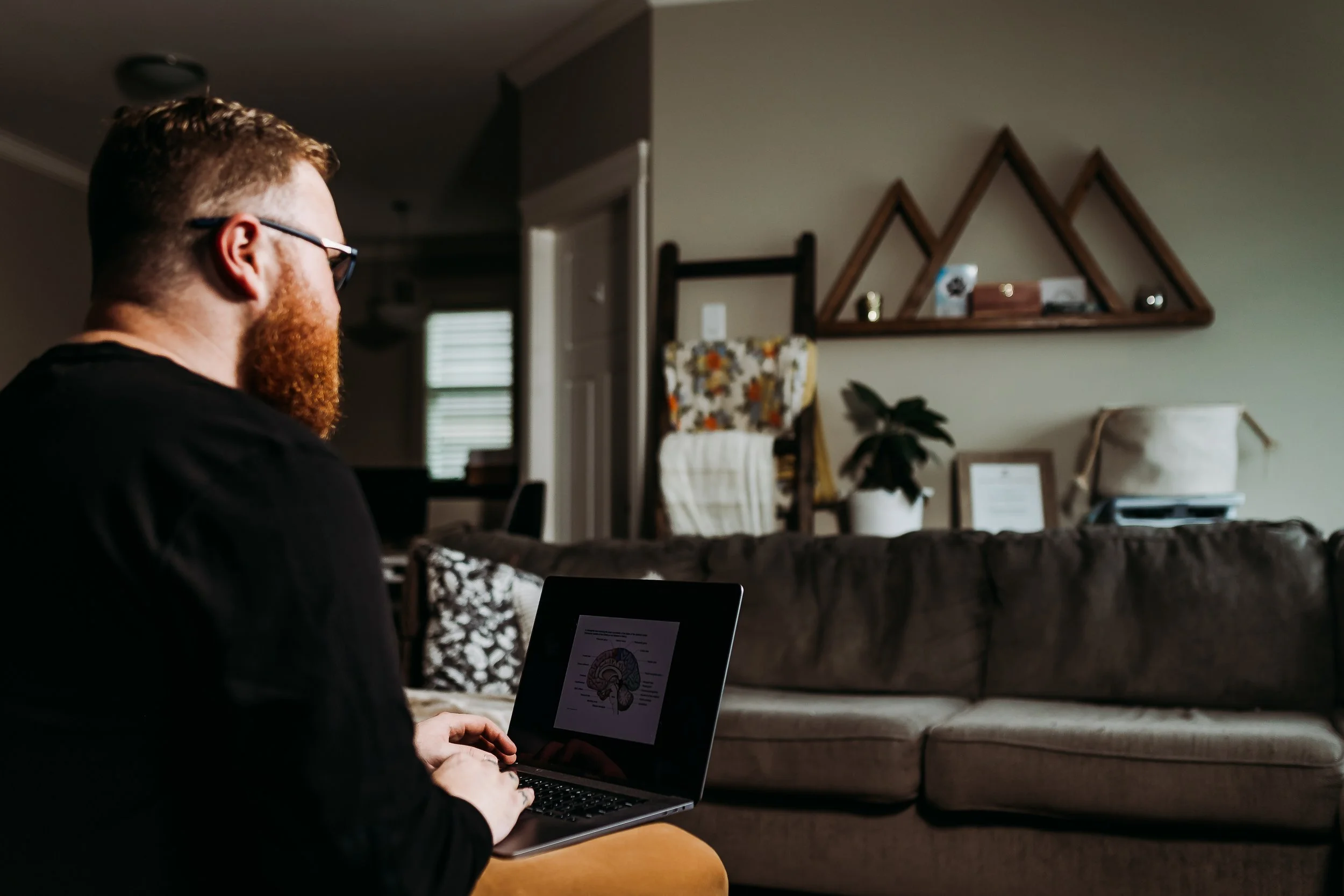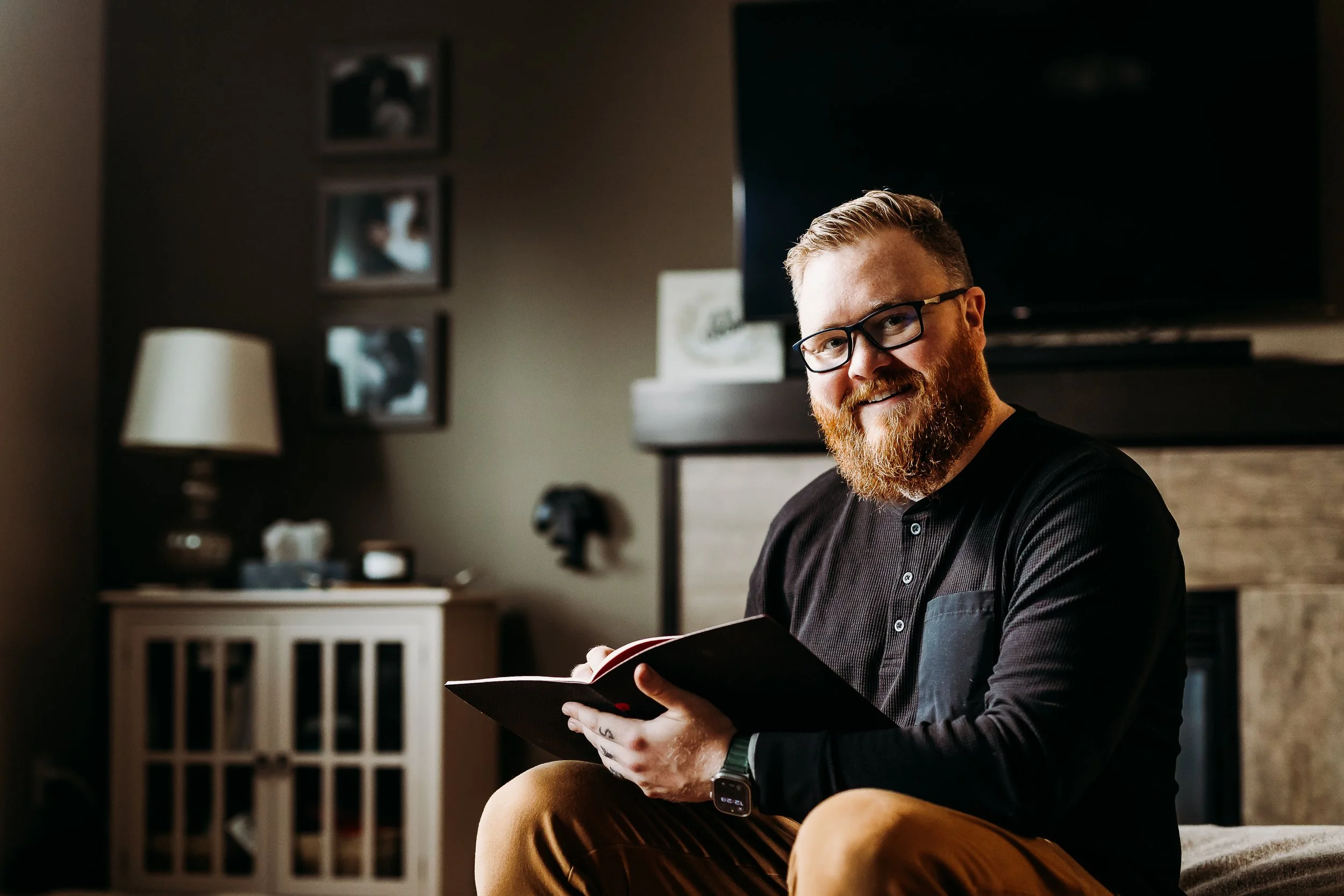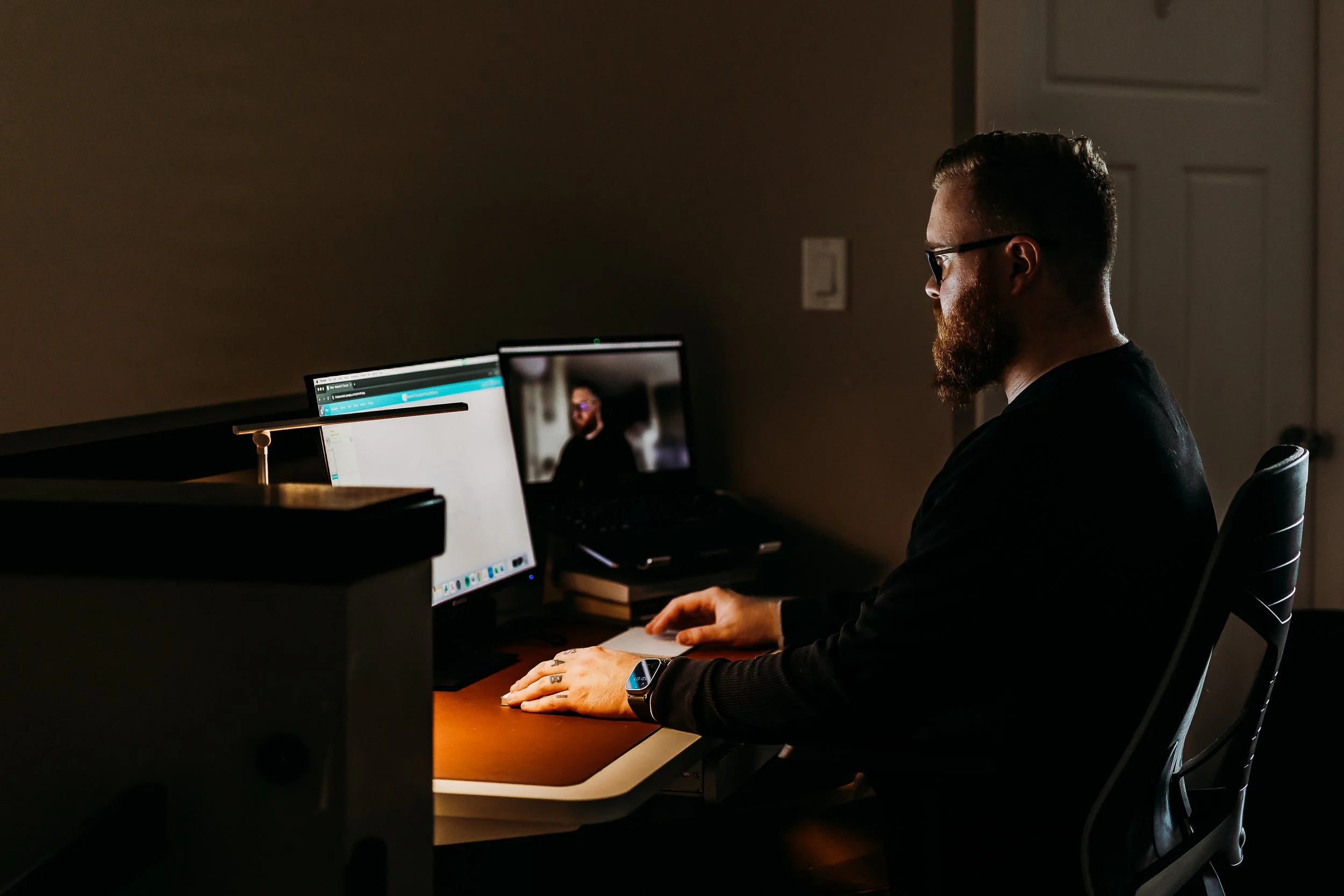The Bearded OT is currently working with clients with the following diagnoses:
ASD
PDA
ADHD
Cerebral palsy
Down syndrome
Fetal Alcohol Syndrome (FAS)
Intellectual disabilities
Developmental delays
Anxiety/Depression
Trauma
Other complex health/neurological/genetic conditions
Amputations
Brain Injuries/Stroke
Step 1: Initial Consultation Call
If you are feeling like the services will be a good fit for your child, please reach out to book an initial free 15 minute consultation call.
During this call, your occupational therapist will be able to gather some initial information about your child and if it seems like a good fit and your OT feels like they can help, they’ll either book you in for an initial assessment or if their caseload is full, your family will be added to our waitlist for future services when there's availability.
Occupational Therapy Process
Step 2: OT Home/Virtual Initial Assessment
During your child's initial occupational therapy assessment, we'll complete both a parent/child interview and functional observation with a variety of assessments and observations. During the parent/child interview I'll ask questions around health, school, life skills, sensory processing, mental health concerns, to better understand your goals and concerns.
Depending on your child's tolerances for therapy and interactions with new people, the functional observation for younger clients may look like play for the remainder of your initial assessment for your OT to gather information and complete play observations. For older children and teens, your OT will work through their initial functional observation, having your child complete various paper based, fine motor, and gross motor movements to gain a better understanding of any underlying developmental and/or neurological concerns.
After these components of the assessment are completed, your OT will report their findings to you during the initial assessment, provide their recommendations and incorporate your concerns to create a holistic treatment plan and goals.
What will be discussed prior to leaving your initial assessment:
What treatment and sessions will look like
Session and child/parent expectations
Setting up initial funding (if required),
Decide on frequency of treatment
You may be provided with some parent questionnaires to fill out and return to your OT during our next scheduled session.
OT will answer any questions you have before getting started.
*Please note that the initial assessment does not include report writing. If you require a report to be written following the initial assessment, this will be billed at OT's report rate. Check Rates page for more information.
Step 3: OT Intervention
Treatment will be catered to your child's needs and adapted as we progress and they achieve goals. The initial assessment provides the OT with insight on what the immediate concerns are for school, life, and connection with others. Bearded OT - Occupational Therapy Services also recognizes that needs change and their OT is both creative and adaptive to your child's needs. If priorities change or things come up that are on your mind or you'd like to explore, please reach out to your OT to discuss these and plan together to see if we can incorporate it as part of your child’s treatment plan.
Please see the Types of Service Delivery section below:
Types of Service Delivery
-
In-Home OT Sessions
These sessions will be completed as home visits with the OT coming to your home to provide intervention services.
Session breakdown: 60 minute sessions (45 minute session direct intervention; 15 minutes for discussion with parents (if needed) and charting)
-
Virtual Telehealth Sessions
This service option is provided through Jane App Telehealth services that are fully HIPAA, PIPEDA, PHIPA, and GDPR compliant.
Session breakdown: 60 minute sessions (45 minute session direct intervention; 15 minutes for discussion with parents (if needed) and charting)
-

Community Visits
If home visits and virtual sessions aren't appropriate for meeting your child's tolerances and/or needs, we can plan to meet in the community for sessions and discuss how we can accomplish this while meeting.
Session breakdown: 60 minute sessions (45 minute session direct intervention; 15 minutes for discussion with parents (if needed) and charting)
